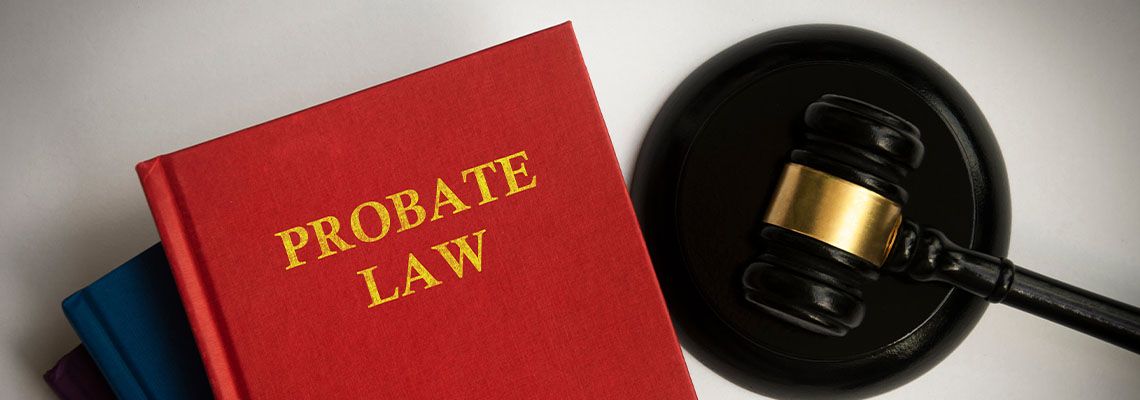
What Happens if You Don’t File Probate?
Probate is the legal process through which a deceased person's assets are distributed according to their will or state law if no will exists. It’s there to ensure that debts are paid and that the legal title of a property is properly transferred to heirs. It's an important step to make sure everything is done legally and fairly.
When you lose a loved one, the last thing you want is to become entangled in probate or other legal procedures. Most non-lawyers find the probate process long drawn and confusing, at the very least.
If you're one of these people, StachlerHarmon Attorneys at Law is happy to help. Not filing for probate can cause a host of complications you never signed up for. Let's take a closer look at the probate process and the consequences of not filing for probate.
Why Probate Matters
Probate is essential for a couple of reasons. It provides a clear-cut method to manage and distribute the deceased person’s assets, and it helps to verify whether the deceased person's debts and taxes are settled before distributing the remaining assets to the beneficiaries.
Not filing probate can create issues that could complicate the lives of those left behind. Some of the consequences of not filing for probate include:
Unresolved debts: If probate is not filed, the deceased's debts may remain unsettled. Creditors can come forward at any time, creating unexpected financial burdens for the deceased's heirs. This could lead to lawsuits and other legal actions aimed at recovering debts from the estate.
Frozen assets: Without probate, the deceased's assets, including bank accounts and real estate, can remain frozen. The deceased's heirs may face various obstacles and challenges to access these assets, leading to financial strain and frustration.
Legal disputes: Without the clarity provided by probate, family members and other potential heirs might be involved in legal disputes over the deceased's property. This can cause rifts within families and lead to prolonged court cases.
Illegitimate claims on assets: Without the oversight that probate provides, there is an increased risk of illegitimate claims on the deceased's assets. Individuals with no rightful claim might attempt to secure portions of the estate, further complicating the distribution process. This can lead to fraud and unjust enrichment at the expense of the legitimate heirs.
Delays in beneficiaries accessing inheritance: Without initiating the probate process, beneficiaries can experience significant delays in gaining access to their inheritance. These delays can be especially burdensome if the heirs are financially dependent on the assets. The prolonged wait can cause unnecessary financial distress and hinder their ability to settle the deceased’s affairs promptly.
Steps to File Probate
Filing for probate is necessary to make sure the deceased's will and estate are managed effectively and efficiently. To file for probate, you should follow these steps:
Gather documents: This includes the will, death certificate, and any relevant financial statements that are crucial in the probate process.
File the petition: This officially starts the probate process and allows the court to appoint an executor or administrator.
Notify creditors and heirs: This allows creditors to make claims against the estate and helps heirs understand what they can expect in terms of inheritance.
The Role of the Executor
The executor is responsible for managing the deceased's assets during the probate process. This includes securing property, managing investments, and ensuring that assets are not wasted or misused.
They must also identify and settle any outstanding debts, including taxes. This is necessary for freeing the estate of any financial liabilities before distributing the remaining assets.
Finally, the executor distributes the remaining assets to the rightful heirs as directed by the will or state law. This completes the probate process and transfers ownership of the deceased’s property to the heirs.
Common Misconceptions About Probate
The probate process is often misunderstood and our firm has encountered various misconceptions surrounding it. Some of the primary misconceptions include:
It's always expensive: While this can be true in some cases, especially for large or complicated estates, small estates or those with well-prepared wills can go through probate relatively smoothly and affordably.
It can be avoided completely: While certain estate planning tools can minimize the need for probate, it is often mandatory, even with good planning.
It takes years to complete: While some probate cases can take years, many are resolved within a few months, especially if the estate is straightforward and there are no disputes among heirs.
Probate Laws in Ohio
Understanding Ohio's probate laws can help you manage the process effectively and work toward achieving a smooth transfer of the deceased's assets.
The time frame for filing: In Ohio, probate needs to be filed within a certain period, usually three months, after the individual's death. Failing to meet this deadline could complicate the process even further.
Small estate exemption: Ohio has a small estate exemption, which can simplify or even eliminate the probate process for estates valued below a specific threshold. The value is currently $35,000 or less than $100,000 if the sole beneficiary of the estate is the deceased's spouse.
Summary release: Ohio offers a Summary Release from Administration for estates valued under $5,000 or if the estate is needed to pay for the funeral expenses. This can expedite the process but still requires some level of legal involvement.
Contact a Probate Lawyer in Dayton, Ohio
At StachlerHarmon Attorneys at Law, our attorneys prioritize your success and provide dedicated guidance through the legal process. Unlike big firms, we aim to respond quickly, achieve better results, and cost less. If you need help handling probate or with other legal matters in Dayton, Ohio, Warren, Greene County, Clark County, Miamisburg, Butler County, or Preble County, call us to schedule a consultation.
